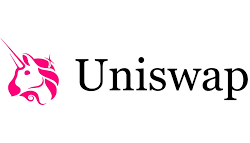In the digital age, the concept of “online charters” has بلیط هواپیما تهران کرمان emerged as a versatile tool across multiple domains, ranging from education to business. These online frameworks and agreements have fundamentally changed how individuals and organizations interact, collaborate, and operate. Below, we delve into what online charters are, their various applications, benefits, and challenges.
What is an Online Charter?
An online charter is a digital document or framework that establishes a set of principles, rules, or guidelines governing specific activities or relationships in an online environment. These charters are widely used in education, business, and even community projects. They serve as a foundation for ensuring accountability, transparency, and consistency, particularly in decentralized or virtual settings.
Online Charters in Education
The education sector has seen a significant transformation with the rise of online charter schools. These institutions operate primarily in the digital realm, offering students a flexible and personalized learning experience.
Key Features of Online Charter Schools
- Curriculum Accessibility: Students access learning materials through digital platforms, allowing them to study at their own pace.
- Diverse Learning Options: These schools often offer specialized programs in STEM, arts, or vocational training.
- Remote Teachers: Certified educators conduct classes virtually, often providing one-on-one guidance.
- Accountability and Performance Metrics: Online charters use analytics to track student progress and ensure educational standards are met.
Benefits
- Flexibility: Ideal for students with unique needs, such as those pursuing professional sports or dealing with health challenges.
- Cost-Effectiveness: Parents save on transportation and other traditional schooling costs.
- Inclusivity: Provides opportunities for students in remote areas to access quality education.
However, online charter schools face challenges like ensuring student engagement and addressing the digital divide.
Online Charters in Business
In the corporate world, online charters are often used to define project goals, team roles, and operational standards. They are particularly vital for remote and hybrid teams.
Applications
- Project Management: An online project charter outlines objectives, deliverables, timelines, and stakeholder responsibilities.
- Governance: Corporate charters establish rules for digital collaborations, ensuring data security and compliance with regulations.
- Community Building: Companies use charters to define the ethos and conduct for virtual communities, such as forums or customer support groups.
Benefits
- Clarity: Online charters eliminate ambiguity by setting clear expectations.
- Transparency: Stakeholders have easy access to guidelines and protocols, fostering trust.
- Adaptability: Digital charters can be updated in real time, keeping pace with changing needs.
Challenges of Online Charters
While online charters offer numerous advantages, they are not without hurdles:
- Digital Literacy: Effective use requires familiarity with online tools, which not all stakeholders possess.
- Compliance: Adhering to international laws and standards can be complex in a global online environment.
- Cybersecurity Risks: Sensitive information within charters may be vulnerable to breaches if not adequately protected.
- Engagement Issues: Maintaining active participation in online charter frameworks can be challenging.
The Future of Online Charters
As technology continues to evolve, the scope of online charters will expand. Innovations like blockchain could enhance transparency and security in charter agreements, while AI might help monitor compliance and suggest improvements. In education, virtual reality and adaptive learning could further personalize online charter school experiences.
For businesses, integrating online charters with collaborative platforms like Slack or Microsoft Teams could streamline workflows and improve efficiency.
Conclusion
Online charters are more than just digital documents; they represent a modern way of organizing and standardizing practices in a virtual world. Whether in education or business, they offer flexibility, clarity, and scalability, making them indispensable in today’s interconnected landscape. However, their success depends on thoughtful implementation, continuous evaluation, and the willingness to adapt to emerging technologies.
The potential of online charters is vast, and as we refine these systems, they will undoubtedly play an even more significant role in shaping the future of education and business.




